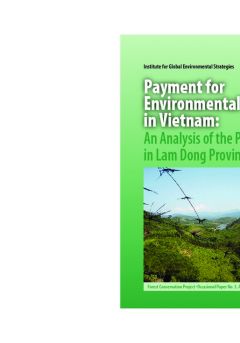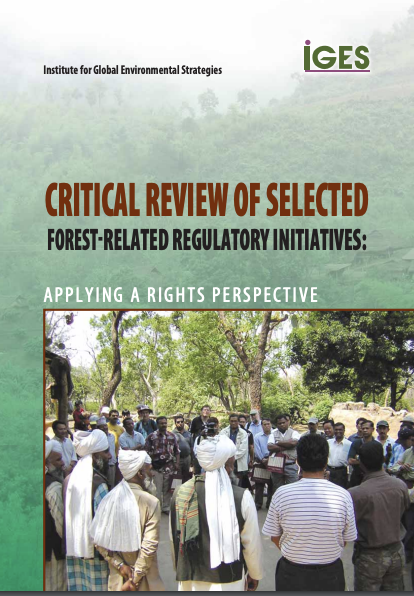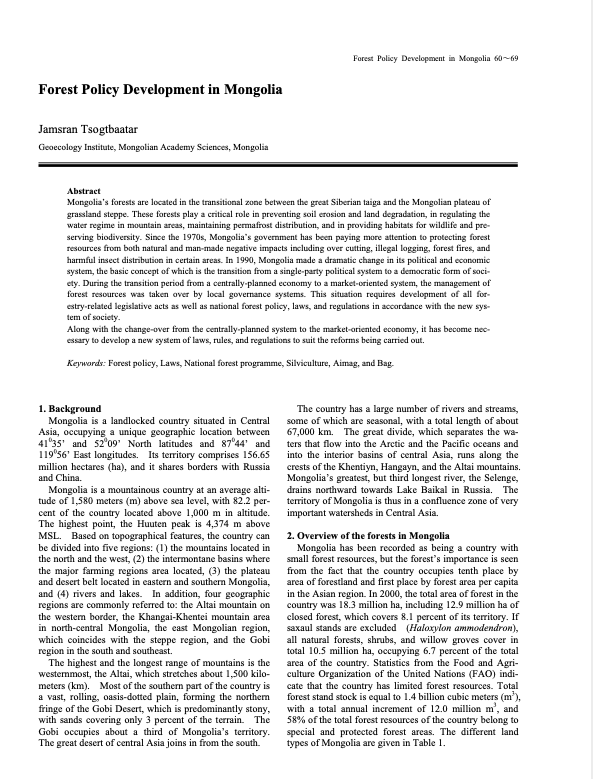Location
The Institute for Global Environmental Strategies (IGES) was established in March 1998 under an initiative of the Japanese government and with the support of Kanagawa Prefecture based on the “Charter for the Establishment of the Institute for Global Environmental Strategies”. The aim of the Institute is to achieve a new paradigm for civilization and conduct innovative policy development and strategic research for environmental measures, reflecting the results of research into political decisions for realising sustainable development both in the Asia-Pacific region and globally. IGES made the transition to a Public Interest Incorporated Foundation in April 2012.
Members:
Resources
Displaying 1 - 5 of 5Putting Free, Prior, and Informed Consent into Practice in REDD+ Initiatives
The principle that indigenous peoples and local communities have a right to give or withhold their Free, Prior, and Informed Consent (FPIC) to developments affecting natural resources is not new. However, experience using FPIC in REDD+ implementation is still limited in the Asia-Pacific region, and there are few materials that explain and train practitioners in its concepts and practice. There is still subjective understanding of the terms and requirements of FPIC, influenced by both cultural interpretations and interests.
Community Carbon Accounting Research Project
The Community Carbon Accounting (CCA) Action Research Project was launched with the intention of elaborating approaches for engaging communities in forest carbon stock monitoring.
Payment for Environmental Services in Vietnam: An Analysis of the Pilot Project in Lam Dong Province
Critical Review of Selected Forest-Related Regulatory Initiatives
This report brings together four studies that evaluate regulatory initiatives with implications for forest-dependent communities from a rights-based perspective. These are: The Scheduled Tribes and Other Traditional Forest Dwellers (Recognition of Forest Rights) Act, 2006 – India; Regulatory initiatives and selected outcomes of judicial processes in Malaysia; The Community Forest Act (2007) – Thailand; and The Indigenous People’s Rights Act (1997) – Philippines. Each study covers law making, content and implementation.
Forest Policy Development in Mongolia
Mongolia’s forests are located in the transitional zone between the great Siberian taiga and the Mongolian plateau of grassland steppe. These forests play a critical role in preventing soil erosion and land degradation, in regulating the water regime in mountain areas, maintaining permafrost distribution, and in providing habitats for wildlife and preserving biodiversity.






